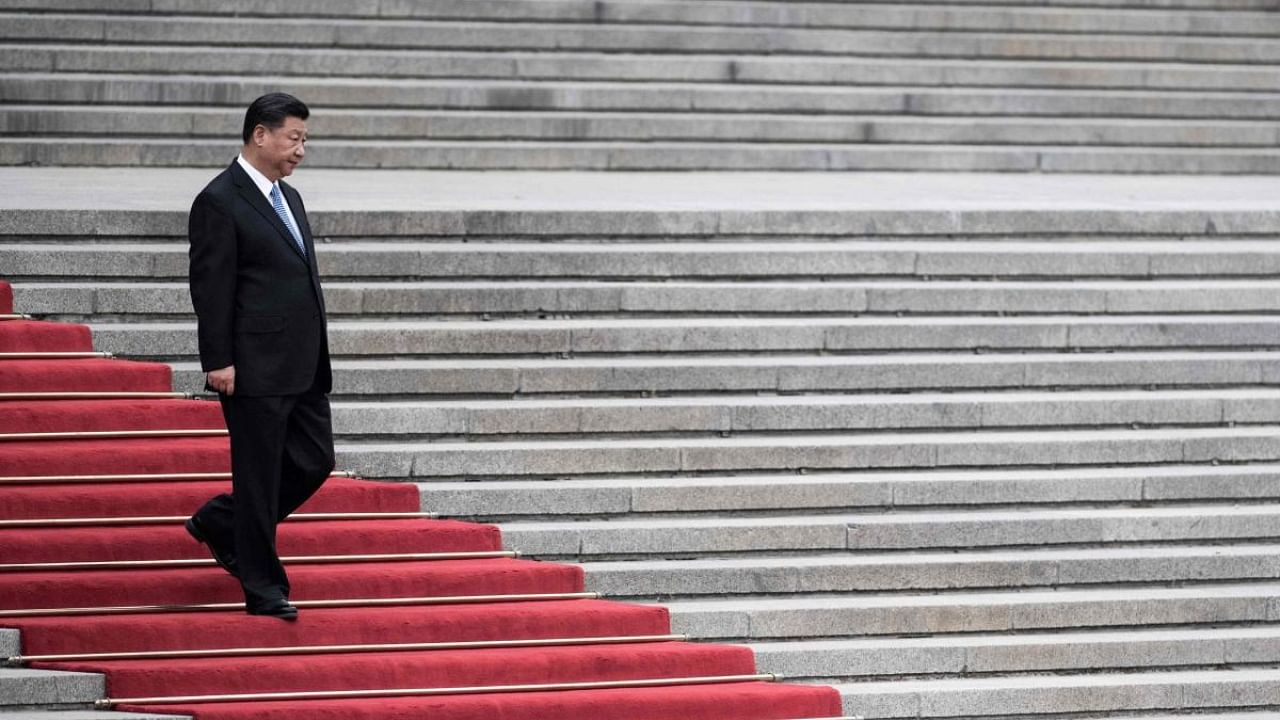
On televisions, newspapers and billboards across China, Xi Jinping's appointment as Communist Party leader for another five years has been greeted with a flood of official fanfare. In one Beijing park, the reaction was more muted.
China's propaganda machine has kicked into top gear for the party's Congress, which ended this weekend with Xi cementing his status as the nation's most powerful figure since Mao Zedong.
In a carefully landscaped park in central Beijing this week, AFP approached more than three dozen people over two days to ask their opinions on Xi's third term, but only seven agreed to be interviewed.
"Since he came to power, ordinary people like us have enjoyed real material gains," said migrant worker Ning Fanglong as he relaxed on a bench among the cypress and willow trees.
Ning credited Xi with driving economic growth and spearheading reforms that have made it easier for rural migrants to work and live in cities.
"Ordinary people feel affluent now... we can afford pretty much whatever we need," said the native of eastern Shandong province.
But other park-goers responded with ambivalence or careful silence when asked for their views, unsurprising in a country where questions about top leaders are deemed extremely sensitive and not worth risking potential backlash.
Xi's decade in power in particular has been characterised by a crushing of dissent, with civil society movements, independent media and academic freedoms curtailed.
With the exception of Ning, everyone who spoke to AFP requested anonymity.
For some, Xi's anointment reflected the need for a steady hand on the tiller at a complex moment in China's modern development.
Perched on a bench beside the cinnabar-red wall of an imperial altar, a 60-year-old civil servant said "China needs its leaders to rule like (Xi)".
"There's lots of chaos in the world at the moment, and China needs a lasting period of safety and stability," he told AFP.
Others pointed to Xi's perceived policy achievements, from a sweeping crackdown on corrupt officials to his hardline zero-Covid policy.
"He has kept us safe during the pandemic," beamed a middle-aged woman in a volunteer's red jacket.
"As far as I'm concerned, he can rule for another term."
Some commentators have warned that Xi's consolidation and centralisation of power -- confirmed in the selection of loyal allies to the party's top body on Sunday -- could end in disaster, evoking the later years of Mao's rule.
But one elderly man said he "embraced" the reversion to one-man rule and was "not worried" about who might lead the country after Xi.
"That's all party history -- you can't compare it with today's situation," he said as he stretched out against an ornamental rock.
"Look how our country has developed -- economically, socially, in science and technology," he added. "Are people not enjoying better lives every year?"
Most people though were unwilling to share their thoughts.
Authorities have fanned distrust of foreign news outlets, accusing them of bias against China and of spreading disinformation.
State media has presented only positive views of Xi's "extraordinary decade" and optimism for the future.
Yet hints of discord have still broken through, most recently when pictures of a lone protester hanging a banner excoriating Xi from a Beijing bridge on the eve of the congress spread on social media before being censored.
Reports of anti-Xi leaflets being anonymously shared via the iPhone AirDrop function also speak to the almost non-existent space for dissent in modern China.
While no one AFP spoke to in the park said they opposed Xi, some expressed apathy about his lengthening tenure, with one woman of around 30 saying the public's "influence on proceedings is limited".
Others hinted that certain things were better left unsaid.
Crouching beneath a swaying willow tree, a migrant worker laughed when asked what he thought about Xi's third term.
"We don't dare to express any opinions about that, especially to the media," he said.
"After all, we're supposed to be patriots."